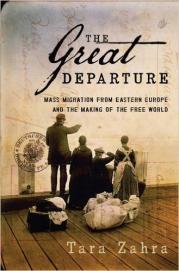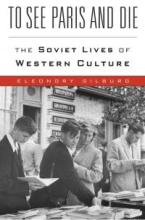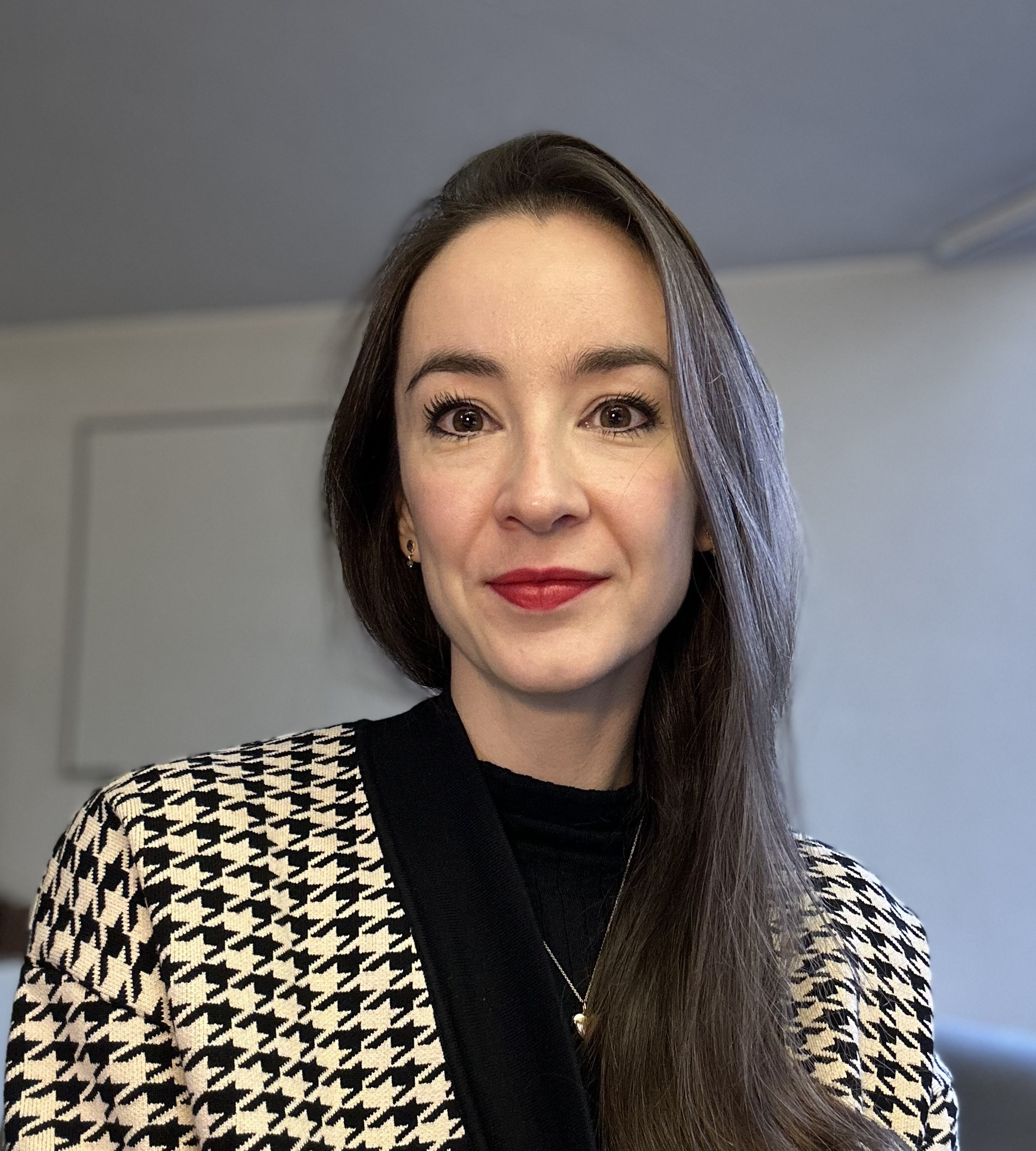
BIOGRAPHY
A scholar of early modern Europe and North America, Prof. Macfarlane works at the intersection of religious, cultural, and intellectual history. She has a particular interest in the history of biblical scholarship, encompassing its production by Latin-speaking scholarly elites, its interactions with vernacular religious culture, and its relationship with theological controversy and confessional identity.
These interests underwrite much of her research, including her first book on the Elizabethan Hebraist Hugh Broughton (Biblical Scholarship in an Age of Controversy: The Polemical World of Hugh Broughton (1549-1612), published with Oxford University Press in 2021); her co-edited volume with Joanna Weinberg and Piet van Boxel on the early modern reception of the Mishnah (The Mishnaic Moment: Jewish Law among Jews and Christians in Early Modern Europe, published in 2022 in the Oxford-Warburg Series); and her second monograph on the relationship between erudition and piety in an exceptional community of early immigrants to New England (Lay Learning and the Bible in the Seventeenth-Century Atlantic World, published with Oxford University Press in 2024).
She is currently working on her third monograph, on the study of Hebrew in North America circa 1660-1800.
Macfarlane most recently served as an Associate Professor at the University of Oxford, where she also received her BA, MSt, and DPhil. She has previously held a Title A Research Fellowship (JRF) at Trinity College, Cambridge University and her research has also been supported by fellowships from the Houghton Library, the Massachusetts Historical Society, the Oxford Centre for Hebrew and Jewish Studies, the Netherlands Institute for Advanced Study, KU Leuven, and Lund University.
Recent Research / Recent Publications
- Lay Learning and the Bible in the Seventeenth-Century Atlantic World. Oxford University Press, 2024.
- Biblical Scholarship in an Age of Controversy: The Polemical World of Hugh Broughton (1549-1612). Oxford University Press, 2021.
- Co-editor with Piet van Boxel and Joanna Weinberg. The Mishnaic Moment: Jewish Law among Jews and Christians in Early Modern Europe. Oxford University Press: Oxford-Warburg Studies, 2022.
- ‘Gospel Harmonies and the Genres of Biblical Scholarship in Early Modern Europe.' Renaissance Quarterly 76.3 (2023): 1027-67.
- 'John Lightfoot (1602-1675), the Westminster Assembly, and the Horae Hebraicae et Talmudicae', Journal of Medieval and Early Modern Studies 53.1 (2023): 87-116.
- ‘Christianity as Jewish Allegory? Guiliemus Surenhusius, Rabbinic Hermeneutics and the Reformed Study of the New Testament in the Early Eighteenth Century,’ in The Mishnaic Moment: Jewish Law among Jews and Christians in Early Modern Europe, pp. 378-400. Oxford University Press: Oxford-Warburg Studies, 2022.
- 'Why did Henry Dunster Reject Infant Baptism? Circumcision and the Covenant of Grace in the Seventeenth-Century Transatlantic Reformed Community,' The Journal of Ecclesiastical History 72.2 (2021): 323-51.
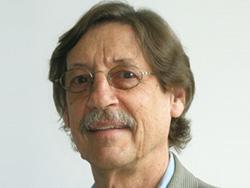
University of California, Berkeley, PhD '71
BIOGRAPHY
Although he retired in 2007, William Sewell still teaches the occasional course. He is a founding editor of Critical Historical Studies, published by the University of Chicago Press. His most recent book is Capitalism and the Emergence of Civic Equality in Eighteenth Century France (University of Chicago Press, 2021). He has long been interested in the intersection between history and social theory, a subject he treated in Logics of History: Social Theory and Social Transformation (University of Chicago Press, 2005). In 2020, he received the inaugural Ibn Khaldun Distinguished Career Award from the Comparative and Historical Sociology Section of the American Sociological Association. He is currently working on various problems in the history of capitalism. Sewell is a fellow of the American Academy of Arts and Sciences. He served as a trustee of the institute for Advanced Study (2009-14) and as president of the Social Science History Association (2011-12). Sewell is also a serious amateur photographer. He provides cover art for Critical Historical Studies and has participated in several individual and group exhibitions.
Recent Research / Recent Publications
- Capitalism and the Emergence of Civic Equality in Eighteenth Century France. Chicago: University of Chicago Press, 2021.
- Logics of History: Social Theory and Social Transformation. Chicago: University of Chicago Press, 2005.
- A Rhetoric of Bourgeois Revolution: The Abbé Sieyes and What Is the Third Estate? Durham, NC: Duke University Press, 1994.
- Structure and Mobility: The Men and Women of Marseille, 1820–1870. Cambridge: Cambridge University Press, 1985.
- Work and Revolution in France: The Language of Labor from the Old Regime to 1848 Cambridge: Cambridge University Press, 1980.
- "On the Emergence of Capitalism: Marx, Brenner, and the Troublesome Case of the Dutch." Critical Historical Studies 11 no. 1 (2024): 1-46.
- “Connecting Capitalism to the French Revolution: The Parisian Promenade and the Origins of Civic Equality in Eighteenth Century France." Critical Historical Studies 1, no. 1 (2014): 5–46.
- “Economic Crises and the Shape of Modern History,” Public Culture 24, no. 2 (2012): 303–27.
- "A Strange Career: The Historical Study of Economic Life,” History and Theory 49, no. 4 (2010): 146–66.
- “The Rise of Capitalism and the Empire of Fashion in Eighteenth-Century France,” Past and Present 206, no.1 (2010): 81–120.
- “The Temporalities of Capitalism,” Socio-Economic Review 6, no. 3 (2008): 517–37.
- “Space in Contentious Politics.” In Silence and Voice in the Study of Contentious Politics, edited by Ronald Aminzade, Doug McAdam, Elizabeth Perry, William H. Sewell, Jr., Sidney Tarrow, and Charles Tilly, 51–89. Cambridge: Cambridge University Press, 2001.
- "The Concept(s) of Culture." In Beyond the Cultural Turn: New Directions in the Study of Society and Culture, edited by Victoria Bonnell and Lynn Hunt, , 35–61. Berkeley: University of California Press, 1999.
- "Historical Events as Transformations of Structures: Inventing Revolution at the Bastille." Theory and Society 25 (1996): 841–81.
- "Three Temporalities: Toward an Eventful Sociology." In The Historic Turn in the Human Sciences, edited by Terrence J. McDonald, 245–80. Ann Arbor:University of Michigan Press, 1996.
- "Toward a Post-Materialist Rhetoric for Labor History." In Rethinking Labor History: Essays on Discourse and Class Analysis, edited by Lenard R. Berlanstein, 15–38. Urbana: University of Illinois Press, 1993.
- “Collective Violence and Collective Loyalties in France: Why the French Revolution Made a Difference.” Politics and Society 18 (1990): 527–52.

Albert Ludwigs Universität Freiburg, DPhil
BIOGRAPHY
My main field of research is twentieth-century German and European history. I have written on such topics as the German military, resistance against the Third Reich, the politics of memory, the culture of death and sacrifice, intellectuals in contemporary Germany, religion and belief, and more. By way of comparison, I have lately ventured into Japanese, American, and Soviet history. Topics I would like to write on in the future include love and friendship and the variety of intimate communities of all kinds or the way the German and European countryside radically changed in the course of the twentieth century. But for the moment, I am engaged in figuring out how to work with transnational histories of Europe and what it takes to do contemporary history in a global age.
My interest in the history and theory of human rights emerges from my concern with war, peace, and the constitution of civil society. I cofounded the Human Rights Program at the University of Chicago, now the Pozen Family Center for Human Rights. My scholarly work focuses on the question why, at certain times, human rights matter, while at others they do not. The question of rights—how people know that they have them and, equally important, that strangers have them too—informs my thinking on the matter.
Recent Research / Recent Publications
-
Coedited with Helmut Lethen and Lutz Musner. Zeitalter der Gewalt: Zur Geopolitik und Psychopolitik des Ersten Weltkriegs. Frankfurt and New York: Campus Verlag, 2015.
-
Coedited with Sheila Fitzpatrick. Beyond Totalitarianism: Stalinism and Nazism Compared. Cambridge: Cambridge University Press, 2009.
-
Coedited with Lucian Hölsche. Die Gegenwart Gottes in der modernen Gesellschaft: Transzendenz und religiöse Vergemeinschaftung in Deutschland. Göttingen: Wallstein Verlag, 2006.
-
Coedited with Hartmut Lehmann. Religion und Nation–Nation und Religion: Beiträge zu einer unbewältigten Geschichte. Göttingen: Wallstein, 2004.
-
Editor. War and Terror in Contemporary and Historical Perspective. Washington, DC: Johns Hopkins University, American Institute for Contemporary German Studies, 2003.
-
With Konrad Jarausch. A Shattered Past: Reconstructing German Histories. Princeton, NJ: Princeton University Press, 2002.
-
"How the Germans Learned to Wage War: On the Question of Killing in the First and Second World Wars." In Between Mass Death and Individual Loss: The Place of the Dead in Twentieth-Century Germany, edited by Paul Betts, Alan Confino, and Dirk Schuman, 25–50. New York; Oxford: Berghahn Books, 2008.
-
"The Subject(s) of Europe." In Conflicted Memories: Europeanizing Contemporary Histories, edited by Konrad H. Jarausch and Thomas Lindenberger, 254–80. New York, Oxford: Berghahn Books, 2007.
-
"Donde moran los alemanes: transnacionalismo en la teoria y la práctica." Istor: Rivista de Historia Internacional 8, no. 30 (2007): 99–113.
-
With Charles Bright. "Regimes of World Order: Global Integration and the Production of Difference in Twentieth Century World History." In Interactions: Transregional Perspectives on World History, edited by Jerry H. Bentley, Renate Bridenthal, and Anand A Yang, 202–38. Honolulu: University of Hawai'i Press, 2005.
-
"Virtue in Despair: A Family History from the Days of the Kindertransport." History & Memory 17 no. 1–2 (2005): 323–65.
-
"Deutschland und Japan im Zeitalter der Globalisierung: Überlegungen zu einer komparativen Geschichte jenseits des Modernisierungs-Paradigmas." In Das Kaiserreich transnational: Deutschland in der Welt 1871–1914, edited by Sebastian Conrad and Jürgen Osterhammel, 68–86. Göttingen: Vandenhoeck & Ruprecht, 2004.
-
"Violence et expérience de la violence au XXe siècle—La Première Guerre mondiale." In 1914–1945: L'ère de guerre: violence, mobilisations, dueils, edited by Anne Duménil, Nicolas Beaupré, and Christian Ingrao, 37–71. Paris: Agnès Viénot Editions, 2004.
-
With Charles Bright. "Where in the World is America? The History of the United States in the Global Age." In Rethinking American History in a Global Age, edited by Thomas Bender, 63–99. Berkeley, University of California Press, 2002.
-
"Insurrectionary Warfare: The German Debate about a Levée en Masse in October 1918." Journal of Modern History 73 (September 2001): 459–527.
-
"The Long Good-bye: German Culture Wars in the Nineties." In The Power of Intellectuals in Contemporary Germany, edited by Michael Geyer, 355–80. Chicago: University of Chicago Press, 2001.
-
"America in Germany: Power and the Pursuit of Americanization." In The German-American Encounter: Conflict and Cooperation between Two Cultures, 1800–2000, edited by Frank Trommler and Elliot Shore, 121–44. New York and Oxford: Berghahn Books, 2001.
-
"Cold War Angst: The Case of West-German Opposition to Rearmament and Nuclear Weapons." In Miracle Years, edited by Hanna Schissler, 376–408. Princeton, NJ: Princeton University Press, 2001.
-
"Germany, or, the Twentieth Century as History." South Atlantic Quarterly 96, no. 4 (1997): 663–702.
-
"Civitella in Val di Chiana, 29 giugno 1944. Ricostruzione di un 'intervento' tedesco.” In La memoria del nazismo nell'Europa di oggi, edited by Leonardo Paggi, 3–48. Florence: La Nuova Italia Editrice Scandici, 1997.
-
With Charles Bright. "World History in a Global Age." American Historical Review 100 (Oct. 1995): 1034–60.
-
"German Strategy in the Age of Machine Warfare, 1914-1945." In Makers of Modern Strategy, 2nd ed, edited by Peter Paret, 527–97. Princeton, NJ: Princeton University Press, 1986.
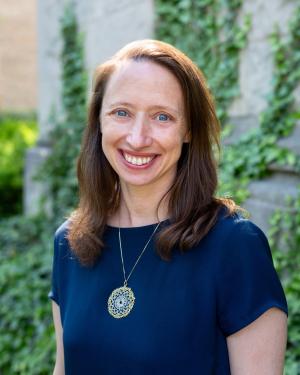
University of Michigan, PhD '05
BIOGRAPHY
Tara Zahra's research focuses on the transnational history of modern Europe, migration, the family, nationalism, and humanitarianism. Her latest book, Against the World: Anti-Globalism and Mass Politics Between the World Wars will be published by W.W. Norton Press in 2023. With Pieter Judson, she is currently working on a history of the First World War in the Habsburg Empire. Zahra is also the author of The Great Departure: Mass Migration and the Making of the Free World (Norton, 2016) and, with Leora Auslander, Objects of War: The Material Culture of Conflict and Displacement (Cornell, 2018). Her previous books include The Lost Children: Reconstructing Europe's Families after World War II (Harvard, 2011) and Kidnapped Souls: National Indifference and the Battle for Children in the Bohemian Lands (Cornell, 2008).
Graduate Advising
I welcome applications from graduate students interested in Central European history (including Habsburg, East European, and German history) in the nineteenth and twentieth centuries, as well as European international history and transnational history. Some of my current and former PhD students have worked on the history of gender and sexuality in late Imperial Vienna; migration and the family in postwar West Germany; the body in late Socialist Czechoslovakia; Jewish culture in postwar Czechoslovakia and Poland, Roma in postwar Hungary; colonialism and empire in Poland and Germany; and masculinity and coal mining in Socialist Czechoslovakia.
Recent Course Offerings
Undergraduate
-
Writing Family History (junior colloquium)
-
Human Rights in World Civilization
-
Twentieth-Century Europe
-
History of Human Rights (in Vienna)
-
East Central Europe in the Twentieth Century
-
Nazism (junior colloquium)
-
European Civilization I & II
-
Gender & Sexuality in World Civilization
-
Migration and Displacement in Twentieth-Century Europe
Graduate
-
History and Anthropology of the Present (with Susan Gal)
-
Seminar: Globalization and Its Discontents (with Jon Levy)
-
Transnational Europe: Twentieth Century
-
Nations & Empires (with Susan Gal)
-
Nationalism in East Central Europe
-
Unsettled Europe: Migration and Displacement in Modern Europe
-
Gender and Sexuality in Modern Europe (with Leora Auslander)
-
Historiography (with Emily Osborn)
-
Migration and Material Culture in Modern Europe (with Leora Auslander)
University and Departmental Service
-
Roman Family Director, Neubauer Collegium for Culture and Society
-
Faculty Sponsor of Transnational Approaches to Modern Europe Workshop
-
Executive Board, Center for Russian, East European, and Eurasian Studies
-
Faculty Affiliate, Center for Study of Gender and Sexuality
-
Editorial Board, Past & Present
Recent Research / Recent Publications
Against the World: Anti-Globalism and Mass Politics Between the World Wars. New York: W.W. Norton, 2023.
Coauthored with Pieter Judson, The Great War and the Transformation of Habsburg Central Europe. Oxford & New York: Oxford University Press, in progress.
Coauthored with Leora Auslander. Objects of War: The Material Culture of Conflict and Displacement. Ithaca, NY: Cornell University Press, 2018.
The Great Departure: Mass Migration from Eastern Europe and the Making of the Free World. New York: W.W. Norton, 2016.
- Review by Benjamin Cunningham in the Los Angeles Review of Books (May 24, 2016)
- Review by The Economist (April 30, 2016)
- Interview with Adam Morgan for the Chicago Review of Books (April 7, 2016)
- Review by Julie M. Klein in the Chicago Tribune (March 17, 2016)
The Lost Children: Reconstructing Europe's Families after World War II. Cambridge, MA: Harvard University Press, 2011.
- George Louis Beer Prize, American Historical Association, 2012
- Radomir Luza Prize, Austrian Cultural Forum, 2012
Kidnapped Souls: National Indifference and the Battle for Children in the Bohemian Lands, 1900–1948. Ithaca, NY: Cornell University Press, 2008; paperback, 2011.
- Book Prize, Czechoslovak Studies Association, 2009
- Barbara Jelavich Book Prize, American Association for the Advancement of Slavic Studies, 2009
- Hans Rosenberg Book Prize, Conference Group for Central European History, 2009.
- Book Prize, Austrian Cultural Forum, 2008-2009
- Laura Shannon Prize, Nanovic Institute, 2008–2009
- “Migration, Mobility, and the Making of a Global Europe,” Contemporary European History 31 (February 2022), 142-54.
- “Against the World: The Collapse of Empire and the Deglobalization of Interwar Austria,” Austrian History Yearbook 52 (2021)
- “Fin d’empire et genre de la déglobalisation,” Clio. Femmes, genre, histoire 53, 2021.
- "'Condemned to Rootlessness and Unable to Budge': Roma, Migration Panics, and Internment in the Habsburg Empire." American Historical Review 122, no. 3 (Jun. 2017).
- "Europe's Shifting Borders." Foreign Affairs (Feb. 11, 2017).
- "Travel Agents on Trial: Policing Mobility in Late Imperial Austria." Past & Present 223 (May 2014): 161–93.
- "Forum: Habsburg History." German History 31 (Jun. 2013): 225–38.
- With Pieter M. Judson. "Introduction." Austrian History Yearbook 43 (2012): 21–27.
- [Papers from the May 2008 symposium, "Indiference to Nation in Habsburg Central Europe."]
- "Going West." East European Politics and Societies 25 (Nov. 2011): 785–91.
- "'The Psychological Marshall Plan': Displacement, Gender, and Human Rights after World War II." Central European History 44 (Mar. 2011): 37–62.
- "Enfants et purification ethnique dans la Tchécoslovaquie d'après-guerre." Annales. Histoire, Sciences Sociales 66 (Apr.–Jun. 2011).
- "'A Human Treasure': Europe's Displaced Children Between Nationalism and Internationalism." Postwar Reconstruction in Europe: International Perspectives 1945–1949 Past & Present Supplement 6 (2011): 210.
- "Imagined Non-Communities: National Indifference as a Category of Analysis." Slavic Review 69 (Spr. 2010): 93–119.
- "'Prisoners of the Postwar': Expellees, Refugees, and Jews in Postwar Austria." Austrian History Yearbook 41 (2010): 191–215.
- "Lost Children: Displacement, Family, and Nation in Postwar Europe." Journal of Modern History 81 (Mar. 2009), 45–86.
- "The Minority Problem: National Classification in the French and Czechoslovak Borderlands." Contemporary European History 17 (May 2008): 137–165.
- "'Each Nation Only Cares for Its Own': Empire, Nation, and Child Welfare Activism in the Bohemian Lands, 1900–1918." American Historical Review 111 (Dec. 2006): 1378–1402.
- "Looking East: East Central European 'Borderlands' in German History and Historiography." History Compass 3, no. 1 (2005): 1–23.
- "Reclaiming Children for the Nation: Germanization, National Ascription, and Democracy in the Bohemian Lands, 1900–1945." Central European History 37 (Dec. 2004): 499–541.
- Writes an opinion piece "Globalization Is Collapsing. Brace Yourselves" for the New York Times (2025)
- Reviews of Against the World: Anti-Globalism and Mass Politics Between the World Wars in The New York Times and The Wall Street Journal.
- Receives Guggenheim Fellowship (2021)
- Delivers the Center for Austrian Studies' 36th Annual Kann Memorial Lecture (2020)
- "The Ugly U.S. History of Separating Famiies Goes Back Way Beyond Trump" in the Daily Beast
- Elected to the American Academy of Arts & Sciences
- Discusses "Europe's Shifting Borders" in Foreign Affairs
- Reviews of The Great Departure in the Chicago Tribune, the Economist, and the Los Angeles Review of Books
- Publishes The Great Departure: Mass Migration from Eastern Europe and the Making of the Free World (Norton, 2016)
- Writes an opinion piece, "America, the Not So Promised Land," for the New York Times
- Coorganizes "People & Things on the Move" conference, Neubauer Collegium
- Coorganizes "Human Trafficking, Labor Migration, and Migration Control in Comparative Historical Perspective" conference, Pozen Family Center for Human Rights
- Awarded 2014 MacArthur Fellowship
- Discusses "Humanitarianism and Displaced Children in Twentieth-Century Europe" [video, 66 minutes]
- Delivers lecture at Shannon Prize Award ceremony [video, 85 minutes]
- Writes on topics related to The Lost Children:Reconstructing Europe’s Families After World War II on The Nation

Yale University, PhD '09
BIOGRAPHY
I am an historian of modern Russia, with a special interest in nineteenth- and twentieth-century politics, culture, and ideas. My work explores how Russia's peculiar political institutions—and its status as a multiethnic empire—shaped public opinion and political cultures. It also interrogates Russia's relationship with the outside world, asking where the Russian experience belongs in the broader context of European and global history. In addition, I am interested in the theory and practice of the digital humanities.
I am currently working on a new history of the origins of the Protocols of the Elders of Zion written for a popular audience. This book offers a new account of how this notorious text came to be, and it asks what history's greatest conspiracy theory can tell us about the present moment, when conspiratorial thinking is again on the rise in society and politics.
My most recent book, Utopia’s Discontents: Russian Exiles and the Quest for Freedom, 1830–1930, was published by Oxford University Press in 2021. It is the recipient of the 2022 Wayne S. Vucinich Book Prize from ASEEES, which recognizes the most important contribution in any discipline of Slavic studies. The book provides the first synthetic account of Europe's "Russian colonies"—boisterous and politically fractious communities formed by exiles from the Russian empire that emerged across the continent in the nineteenth and early twentieth centuries. The book treats the "Russian colonies" as utopian communities in which radical activists worked to transform social relations and individual behavior, and it explores how these unique spaces influenced Russian political imaginaries as well as the culture of their host societies. Ultimately, the project offers a bold reassessment of Russia's relationship with Europe, the origins of the Russian revolution, and the creation of the Bolshevik regime.
My first book, Children of Rus’: Right-Bank Ukraine and the Invention of a Russian Nation, was published by Cornell University Press in 2013 and released in paperback in 2017. Children of Rus' argues that it was on the extreme periphery of the tsarist empire—a region that today is located at the very center of the independent nation of Ukraine—that Russian nationalism first took shape and assumed its most potent form. The book reconstructs how nineteenth-century provincial intellectuals came to see local folk customs as the purest manifestation of an ancient nation that unified all the Orthodox East Slavs, and how they successfully propagated their ideas across the empire through lobbying and mass political mobilization. In addition, it reconceptualizes state-society relations under tsarism, showing how residents of a diverse and contested peripheral region managed to shape political ideas and identities across Russia—and even beyond its borders. Children of Rus' was named a Choice Outstanding Academic Title for 2013.
My current research is enriched by technology, and I am interested in thinking through how historians can use digital tools to open new avenues for exploration and to communicate their findings to other scholars and the general public. I am particularly interested in using geo-spatial analysis to analyze flows of people, ideas, and commodities over time and across space. For examples of my (ongoing) work in digital cartography, see my Utopia's Discontents website in development and my study of émigré publications.
I have held research fellowships at Columbia, Harvard, and the Cullman Center for Scholars and Writers at the New York Public Library. My research has been funded by ACLS, IREX, Fulbright-Hays, and the NEH.
I am represented by Kathleen Anderson (kathleen@andersonliterary.com) of Anderson Literary Management.
Recent Research / Recent Publications
- Utopia’s Discontents: Russian Émigrés and the Quest for Freedom, 1830s-1930s, Oxford University Press, 2021. Awarded the 2022 Wayne S. Vucinich Prize.
- "'The Franco-Russian Marseillaise': International Exchange and the Making of Anti-Liberal Politics in Fin-de-Siècle France." Journal of Modern History 89, no. 1 (Mar. 2017): 39–78.
- "Children of Rus’: Nationalist Imaginations in Right-Bank Ukraine." In The Future of the Past: New Perspectives in Ukrainian History, edited by Serhii Plokhy. Cambridge, MA: Harvard University Press, 2016.
- "Making and Breaking the Russian Empire: The Case of Kiev’s Shul’gin Family." In Imperiale Biographien: Elitekarrieren im Habsburger, Russischen und Osmanischen Vielvölkerreich (1850–1918), edited by Malte Rolf and Tim Buchen, 178–98. Munich: Oldenbourg-Verlag, 2015.
- "Intimacy and Antipathy: Russian-Ukrainian Relations in Historical Perspective." Kritika 16, no. 1 (Win. 2015): 121–28.
- Children of Rus': Right-Bank Ukraine and the Invention of a Russian Nation. Ithaca, NY: Cornell University Press, 2013.
- "Modernist Visions and Political Conflict in Late Imperial Kiev." In Races to Modernity: Metropolitan Aspirations in Eastern Europe, 1890–1940, edited by Jan C. Behrends and Martin Kolrausch. New York: Central European Press, 2014.
- "Ukrainophile Activism and Imperial Governance in Russia's Southwestern Borderlands." Kritika 13, no. 2 (Spr. 2012): 301–26.
- "Migration, Mobility, and Political Conflict in Late Imperial Kiev." In Russia on the Move: Essays on the Politics, Society and Culture of Human Mobility, 1850–Present, edited by John Randolph and Eugene Avrutin. Urbana: University of Illinois Press, Studies of World Migrations Series, 2011.
- Writes op-ed on seizing Russian oligarchs' wealth for The Atlantic
- Interviewed for Meduza on Putin's presentation of Ukrainian and Soviet history
- Quoted in USA Today article on how historians see the invasion of Ukraine
- Quoted in Politifact on the history of Russian imperialism
- Interviewed for The World on the entangled histories of Russia and Ukraine
- Writes op-ed on immigration for The Washington Post
- Quoted in Chicago Tribune article on the meaning of "concentration camp"
- Named a 2018–19 Cullman Center Fellow at the New York Public Library
- Review of AHA session on "History and Historians in the Ukraine Crisis" by Sarah Fenton
- Quoted in National Geographic article on Ukrainian-Russian conflict
- Children of Rus' reviewed in the Moscow Times
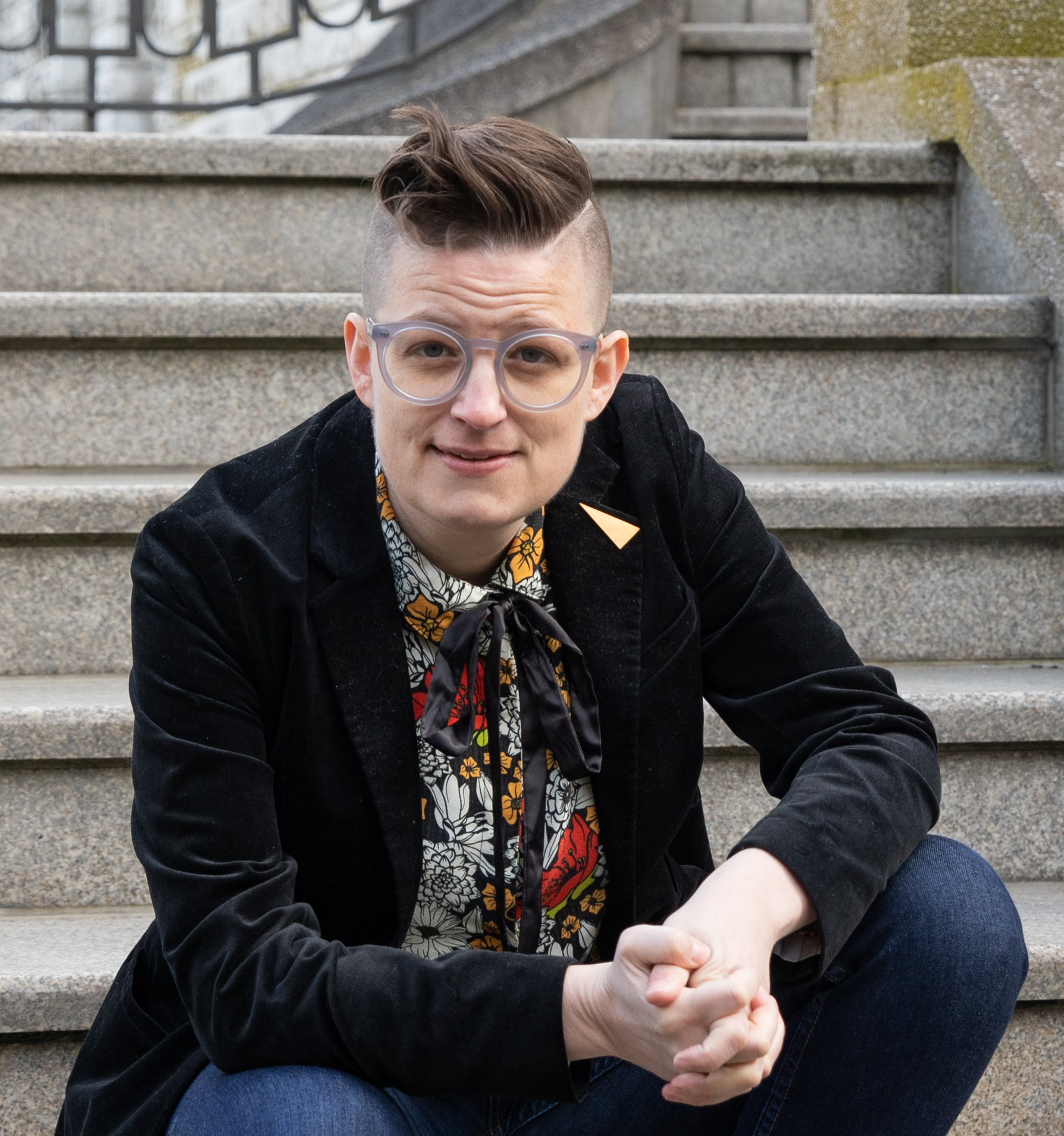
University of California, Berkeley, PhD '15
BIOGRAPHY
I am a historian of German cultural and intellectual life in the modern period. My research and teaching center on material culture, the history of museums, and the history of aesthetics.
My first book, The God Behind the Marble: The Fate of Art in the German Aesthetic State (University of Chicago Press, 2024) is a history of German cultural politics and aesthetics during the French Revolution and Napoleonic Wars. It tells this story through Germans’ engagement with the French looting of European art collections, a Kunstraub [‘art robbery’] that challenged the faith that art offered a powerful source of societal liberation in a period of revolutionary violence. By following conflicts over the ownership, interpretation, conservation, and exhibition of objects, the book argues that the world of arts administration at the beginning of the nineteenth century was a ground of struggle over the powerlessness of art to convey political meaning, a struggle with lasting consequences for how we understand the modern public museum of art. In addition to the monograph, two additional essays draw on this research: “The Honor of the Trophy: A Prussian Bronze in the Napoleonic Era” in The Things They Carried: War, Migration and Material Culture, ed. Leora Auslander and Tara Zahra (Ithaca, NY: Cornell University Press, 2018); and “Lüdwig Völkel’s Sababurg List: An Inventory of the Public Museum of Art,” in Taking Stock: Media Inventories of the German Nineteenth Century, eds. Sean Franzel, Ilinca Iurascu, and Petra McGillen (Berlin: De Gruyter, forthcoming).
I am currently at work on two projects which shift my focus from the eighteenth and nineteenth centuries both forward and backwards in time. The first, Postwar Premodern: A Baroque History of Germany after 1945 investigates how the artistic and craft traditions of the baroque period became political, personal, and aesthetic resources for making sense of the future of German society amidst the proliferating critiques of modernity in the wake of Nazism and the Holocaust. Rather than looking at historical preservation, my research is focused on episodes of historical re-use, in which a premodern past became a consumable utility for the reconstitution of German society in east and west. Chapters focus on the reuse of buildings, the restitution of art collections, the recreation of cabinets of curiosity, the study of early modern statecraft, and postwar typographical and handwriting reforms. An initial case study from this project was published as "The Splendor of Dresden in the United States, 1978-79” Representations 141, no. 1 (Winter 2018).
A branch of this book has turned into a separate project of its own about the restitution of European church bells after 1945. During the Second World War, the National Socialist regime requisitioned bells from across German and German occupied territory to be melted down and recast as armaments. This study of the many thousands of bells, largely from before 1800, that remained at the war’s end in depots in Hamburg and across northern Germany engages the fields of sounds studies, material cultural studies, history of religion, legal history, and memory studies to show how bells became tools of Cold War politics, and complex sources of cultural historical identification in the postwar world.
I received my PhD in History from the University of California Berkeley, and hold an MSI in Archives and Records Management from the University of Michigan and a BA from Bryn Mawr College. From 2015-2017, I was a Postdoctoral Fellow at the Society of Fellows at the University of Michigan in the Departments of History and Germanic Languages and Literatures. My research has been funded by the Neubauer Collegium and the Center for International Social Science Research at the University of Chicago, the American Academy in Berlin, the Mabel Mcleod Lewis Foundation, the DAAD, and the Council for Library and Information Resources.
NEWS
On February 12, 2024 from 6:00-7:00pm, I will discuss my new book, The God Behind the Marble. I will be joined in conversation by Catriona MacLeod. RSVP HERE
Histories of Culture in Disastrous Times, research project with Jennifer Allen at the Neubauer Collegium for Culture and Society
Received a 2024-2025 CISSR grant for the European church bell project
Recent Research / Recent Publications
-
The God Behind the Marble: The Fate of Art in the German Aesthetic State (University of Chicago Press, 2024).
-
"The Splendor of Dresden in the United States, 1978-79." In "The Object as Ambassador: Exhibitions in Contemporary History." Special issue, Representations 141, no. 1 (Winter 2018): 20–38.
-
"The Honor of the Trophy: A Prussian Bronze in the Napoleonic Era." In Objects of War: The Material Culture of Conflict and Displacement, ed. Leora Auslander and Tara Zahra. Ithaca, NY: Cornell University Press, 2018.
-
"The Selbst Gewählter Plan: The Schildbach Wood Library in Eighteenth-Century Hessen-Kassel." Representations 128, no. 1 (Fall 2014): 30–59.
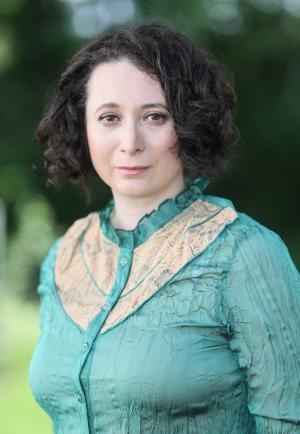
University of California, Berkeley, PhD '10
BIOGRAPHY
I specialize in the history of modern Russia and the Soviet Union, with a particular interest in Soviet culture, society, and their international context. Currently, I am at work on two book projects.
The first, Weary Sun, explores the history of tango, its creators and audiences, in Stalinist Russia and Eastern Europe. Soviet tango was made in Riga and Warsaw. Struck by the connections and exchanges between Soviet and émigré cultures, I focus on the largely unexamined Russian-speaking communities at the borders of the Soviet Union. Tango occupied a central place in the Soviet aural world, yet it fits uncomfortably in the dominant narratives and thus calls for a rethinking of Stalinist culture. This research reconstructs the sounds of Soviet courtyards, communal apartments, southern resorts, movie theaters, and parks of "rest and culture," where people encountered the tango most frequently. I seek to explain tango’s aesthetic and ideological work among other representations of socialist paradise.
Another project, The Entangled Histories of Soviet Newspeak and the Russian Language in the Twentieth Century, describes the rise and fall of Soviet newspeak as a language intricately bound to the daily uses and reforms of Russian itself. I see the Russian language as a field for defining social status and cultural authority in a post-revolutionary world. Multiple players were active in this field, including ordinary speakers of Russian and writers who experimented with the vernacular.
My first book, To See Paris and Die: The Soviet Lives of Western Culture (Harvard, 2018), is a history of the Soviet opening to the West during the 1950s and 1960s. The book investigates why and how Western cultural imports arrived in the Soviet Union on an unprecedented scale, as well as what meanings they acquired for Soviet audiences. To See Paris and Die brings together the ideas that justified cultural exchange and the diplomatic negotiations that made it possible, the secrets of museum storage rooms and the publicity of radio broadcasts, lavish international film festivals and backwater countryside screenings, enormous print runs and home-made books, state-sponsored travel and emigration. Analyzing how the Soviets received Western novels, paintings, and films, the book takes translation as its central theme — a mechanism of cultural transfer, a method of habituation of foreign imports, and a metaphor for transnational interactions. When they first appeared en masse, Western imports were extraordinary, but in the process of cross-cultural transfer that began in the mid-1950s, the foreign became quotidian—an indiscernible part of late Soviet culture and daily life.
My research has been supported by the National Endowment for the Humanities, the Kennan Institute, the American Philosophical Society, the National Council for Eurasian and East European Research, the Social Science Research Council, American Councils for International Education, the Mabelle McLeod Lewis Foundation, and the Fulbright-Hays program, among others.
Recent Research / Recent Publications
To See Paris and Die: The Soviet Lives of Western Culture. Cambridge, MA: Harvard University Press, 2018.
-
Best Book in Cultural Studies Prize, American Association of Teachers of Slavic and East European Languages, 2019
-
Laura Shannon Prize in Contemporary European Studies, Nanovic Institute, University of Notre Dame, 2020
-
Wayne S. Vucinich Book Prize, Association for Slavic, East European, and Eurasian Studies, 2019
-
Marshall D. Shulman Book Prize, Association for Slavic, East European, and Eurasian Studies, 2019
-
Honorable Mention, Aldo and Jeanne Scaglione Prize for Studies in Slavic Languages and Literatures, Modern Language Association, 2019
-
Shortlist, Council for European Studies Book Award, 2020
-
Shortlist, Best First Book Prize, American Association of Teachers of Slavic and East European Languages, 2019
-
Shortlist, Pushkin House Russian Book Prize, Pushkin House, London, 2019
The Thaw: Soviet Society and Culture during the 1950s and 1960s, edited by Denis Kozlov and Eleonory Gilburd. Toronto: University of Toronto Press, 2013.
-
"Seminal Years and the Long Arc of the Moral Universe [review essay]." Kritika: Explorations in Russian and Eurasian History 20, no. 3 (Summer 2019), 613-626.
-
"The Thaw as an Event in Russian History [coauthored with Denis Kozlov]." In The Thaw: Soviet Society and Culture during the 1950s and 1960s, edited by Denis Kozlov and Eleonory Gilburd, 18–81. Toronto: University of Toronto Press, 2013.
-
"The Revival of Soviet Internationalism in the 1950s." In The Thaw: Soviet Society and Culture during the 1950s and 1960s, edited by Denis Kozlov and Eleonory Gilburd, 262–401. Toronto: University of Toronto Press, 2013.
-
"Picasso in Thaw Culture." Cahiers du monde russe 47, no. 1–2 (Jan.–July 2006): 65–108
-
"Books and Borders: Sergei Obraztsov and Soviet Travels to London in the 1950s." In Turizm: The Russian and East European Tourist Under Capitalism and Socialism, edited by Anne Gorsuch and Diane Koenker, 227–47. Ithaca and London: Cornell University Press, 2006.
Published To See Paris and Die: The Soviet Lives of Western Culture (Harvard, 2018)
-
Wins ASEEES's Wayne S. Vucinich Book Prize and Marshall Shulman Book Prize
-
Rachel Polonsky, "When the Soviets Shimmied," New York Review of Books, Aug. 15, 2019.
-
Michele A. Berdy, "Gilburd Reveals Second Lives Behind the Iron Curtain," Moscow Times, May 25, 2019.
-
Jennifer Wilson, "How to Think Freely," New Republic, May 9, 2019.
-
Pushkin House 2019 Russian Book Prize (shortlist)
-
Harry Robertson, Book Review, Financial Times, Dec. 14, 2018.
-
Interview with Anna Chernyakhovskaya, Higher School of Economics, National Research University, Moscow, Apr. 4, 2018.
-
Interview with Alexander Kan, BBC Russian Service, June 8, 2019
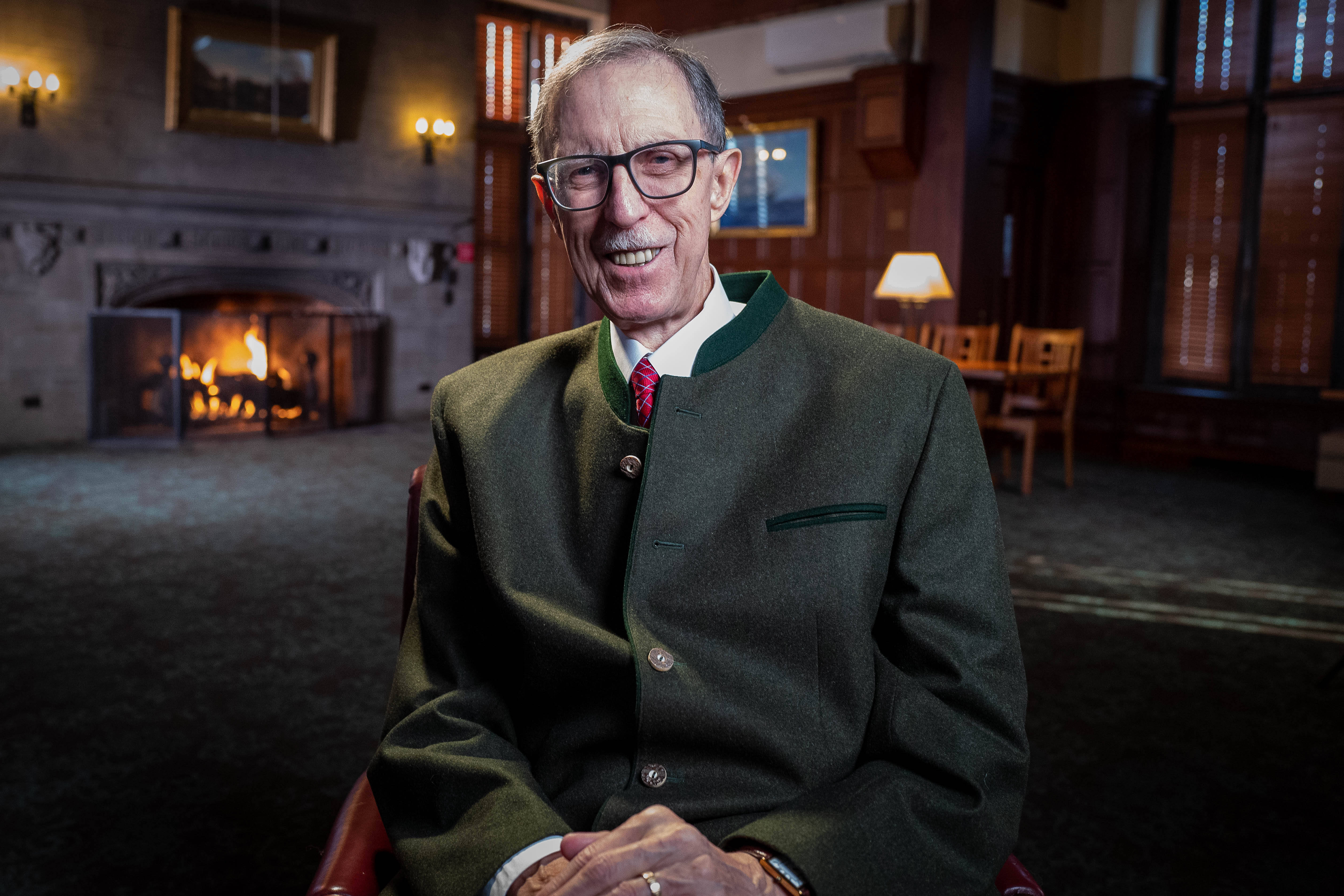
University of Chicago, PhD '75
BIOGRAPHY
My research and teaching focus on the history of modern Europe, especially on the states, the peoples, and the societies of Central Europe since 1700. My special teaching interests are German history from 1740 to 1918; the history of the Hapsburg Empire between 1648 and 1918, and the history of Austria from 1918 to the present; religion and politics in modern European history; and the history of European and American universities in the nineteenth and twentieth centuries.
In recent years my work has dealt with the history of the University and with the history of the Habsburg Empire and Republican Austria. I published The University of Chicago: A History (University of Chicago Press, 2015), and I have recently completed the Austria, 1867–1955 volume for the Oxford History of Modern Europe series, published by Oxford University Press in late 2022.
I am now working on a history of Religion and Politics in Modern European History from 1789 to 1960 for Princeton University Press.
With Jan E. Goldstein and Fredrik Albritton Jonsson, I am also an editor of The Journal of Modern History.
Recent Research / Recent Publications
- Austria, 1867-1955. Oxford History of Modern Europe Series. Oxford: Oxford University Press, 2022.
- Karl Lueger (1844–1910). Christlichsoziale Politik als Beruf. Vienna: Böhlau Verlag, 2009.
- Culture and Political Crisis in Vienna: Christian Socialism in Power, 1897–1918. Chicago: University of Chicago Press, 1995.
- Political Radicalism in Late Imperial Vienna: Origins of the Christian Social Movement, 1848–1897. Chicago: University of Chicago Press, 1981.
- Coeditor (with Jan E. Goldstein). Nineteenth-Century Europe: Liberalism and Its Critics. Chicago: University of Chicago Press, 1988.
- Coeditor (with Jan E. Goldstein). Twentieth-Century Europe. Chicago: University of Chicago Press, 1987.
- “A Catholic Triptych from Monarchy to Republic: Ignaz Seipel, Richard Schmitz, and Michael Pfliegler,” in Ulrike Harmat, ed., Die Habsburgermonarchie 1848-1918. Sonderband. Das Erbe der Habsburgermonarchie in den Nachfolgestaaten. Brüche und Kontinuitäten (Vienna, 2025), pp. 917-52.
- "Die Gründung der Republik (1918)." In 100 Jahre Republik: Meilensteine und Wendepunkte 1918–1920. Edited by Andreas Huber. Vienna, 2020.
- "From an Absolutist to a Constitutional State: The Political System." In Franz Joseph 1830–1916. Edited by Karl Vocelka and Martin Mutschlechner, 34–37. Vienna: Brandstätter, 2016.
- "Badeni and the Revolution of 1897." In Bananen, Cola, Zeitgeschichte: Oliver Rathkolb und das lange 20. Jahrhundert. Edited by Lucile Dreidemy et al. 2 vols. Vienna: Böhlau, 2015. Vol. 1, 69–84.
- "Power, Partisanship, and the Grid of Democratic Politics: 1907 as the Pivot Point of Modern Austrian History." Austrian History Yearbook 44 (2013): 148–74.
- "Richard Schmitz and the Tradition of Imperial Catholic Politics in Austria 1907–1934." Demokratie und Geschichte. Jahrbuch des Karl von Vogelsang-Institutes 13/14 (2009/2010): 95–134.
- "The 'Collectivism of Democracy': Mass Politics in Vienna and Chicago, 1890–1918." Jahrbuch des Vereins für Geschichte der Stadt Wien 62/63 (2006/2007): 9–49.
- "Tradition und Wandel—Die Christlich Soziale Partei am Vorabend des Ersten Weltkrieges." Demokratie und Geschichte. Jahrbuch des Karl von Vogelsang-Institutes 9/10 (2005/2006): 73–99.
- "Political Catholicism in Austria, 1880-1960." Contemporary Austrian Studies 13 (2004): 6–36.
- "Silent War and Bitter Peace: The Austrian Revolution of 1918." Austrian History Yearbook 34 (2003): 1–56.
- "Wiener Konservatismus vom Reich zur Republik: Ignaz Seipel und die österreichische Politik." In Konservative Profile: Ideen und Praxis in der Politik zwischen FM Radetzky, Karl Kraus und Alois Mock. Edited by Ulrich E. Zellenberg, 341–361. Graz: Ares, 2003.
- "Catholics, Christians, and the Challenges of Democracy: The Heritage of the Nineteenth Century." In Christdemokratie in Europa im 20. Jahrhundert. Edited by Michael Gehler, Wolfram Kaiser, and Helmut Wohnout, 23–59. Vienna: Böhlau, 2001.
- "Religion and Political Development in Central Europe around 1900: A View from Vienna." Austrian History Yearbook 25 (1994): 13–57.
- "Christian Socialism under the Empire. Some Reflections." In Geschichte Zwischen Freiheit und Ordnung, 57–74. Graz: Styria, 1991.
- "Some Reflections on the Problem of Austria, Germany, and Mitteleuropa." Central European History 22 (1989): 301–15.
- "Austrian Catholics and the World: Facing Political Turmoil in the Early Twentieth Century." In The Mirror of History, 315–352. Santa Barbara, CA: ABC-Clio, 1988.
- Austria in the 1980s: Heritage of the Past, Contours of the Future. Washington, DC: Aspen Institute for Humanistic Studies, 1987.
- "The End of an Old Regime: Visions of Political Reform in Late Imperial Austria." Journal of Modern History 58 (1986): 159–93.
- "Karl Lueger and the Viennese Jews." Yearbook: The Leo Baeck Institute 26 (1981): 125–44.
- "Veränderungen im politischen Leben Wiens: Die Grossstadt Wien, der Radikalismus der Beamten und die Wahlen von 1891." Jahrbuchdes Vereins für Geschichte der Stadt Wien 36/37 (1980/1981): 95–172/117–76.
- "Freud, Marriage and Late Viennese Liberalism: A Commentary from 1905." Journal of Modern History 50 (1978): 72–102.
- "A. J. P. Taylor and the Art of Modern History." Journal of Modern History 49 (1977): 40–72.
- The University of Chicago: A History, Enlarged Edition. Chicago: University of Chicago Press, 2024.
- The University of Chicago: A History. Chicago: University of Chicago Press, 2015.
The following papers are published in the College's Occasional Papers on Higher Education Series.
- Volume XXVII. Thirty Years in the Field | Annual Report to Faculty – October 25, 2022
- Volume XXVI. Insider Visions of the University: Thorstein Veblen, William Benton and John Benton on the Identity of the University of Chicago – October 26, 2021
- Volume XXV. Charles H. Judd, an Empire of Testing, and the 'Science of Education' – October 29, 2019
- Volume XXIV. ‘The Universities and the Promise of American Life – October 24, 2017
- Volume XXIII. ‘Higher Education in America and Europe Around 1900’: Some Perspectives on Our Shared History and Its Relevance For Our Time – October 18, 2016
- Volume XXII. ‘A Hell of a Job Getting it Squared Around’: Three Presidents in Times of Fundamental Change: Ernest D. Burton, Lawrence A. Kimpton, and Edward H. Levi – October 30, 2012
- Volume XXI. ‘Teaching at a University of a Certain Sort’: Education at the University of Chicago Over the Past Century – October 18, 2011
- Volume XX. ‘Not as a Thing for the Moment, but for All Time’: The University of Chicago and Its Histories – October 19, 2010
- Volume XIX. ‘A Noble and Symmetrical Conception of Life’: The Arts at Chicago on the Edge of a New Century – October 27, 2009
- Volume XVIII. ‘The Kind of University That We Desire to Become’: Student Housing and the Educational Mission of the University of Chicago – October 28, 2008
- Volume XVII. ‘We are All Islanders to Begin With’: The University of Chicago and the World in the Late Nineteenth and Twentieth Centuries – October 30, 2007
- Volume XVI. A Twentieth-century Cosmos: The New Plan and the Origins of General Education at Chicago – October 31, 2006
- Volume XV. ‘Broad and Christian in the Fullest Sense’: William Rainey Harper and the University of Chicago – October 25, 2005
- Volume XIII. The ‘Persistence to Keep Everlastingly at It’: Fund-raising and Philanthropy at Chicago in the Twentieth Century – October 26, 2004
- Volume XII. Judson’s War and Hutchins’s Peace: The University of Chicago and War in the Twentieth Century – October 28, 2003
- Volume X. Academic Freedom and the Modern University: The Experience of the University of Chicago – May 20, 2016
- Volume VIII. The Organization of the College and the Divisions in the 1920s and 1930s – October 30, 2001
- Volume VI. Building for a Long Future: The Role of the Trustees in the Early University – October 17, 2000
- Volume IV. The University of Chicago in the 1960s and 1970s – October 19, 1999
- Volume III. Continuity & Change: The College as a Sponsor of Research and Teaching – October 20, 1998
- Volume II. Continuity & Change: The College as an Advocate of Curricular Innovation and Debate – October 21, 1997
- Volume I. Continuity & Change: The College as a Member of the Wider University – October 22, 1996
- "Drafting Salvation." University of Chicago Magazine (December 1995): 18–21.
- Appointed to Sixth Term as Dean of the College
- Completes a scholarly history of the University of Chicago.
- Awarded a doctorate honoris causa by the University of Vienna on the occasion of the university's 650th anniversary, at the Dies Honorum ceremony in Vienna on May 13, 2015.
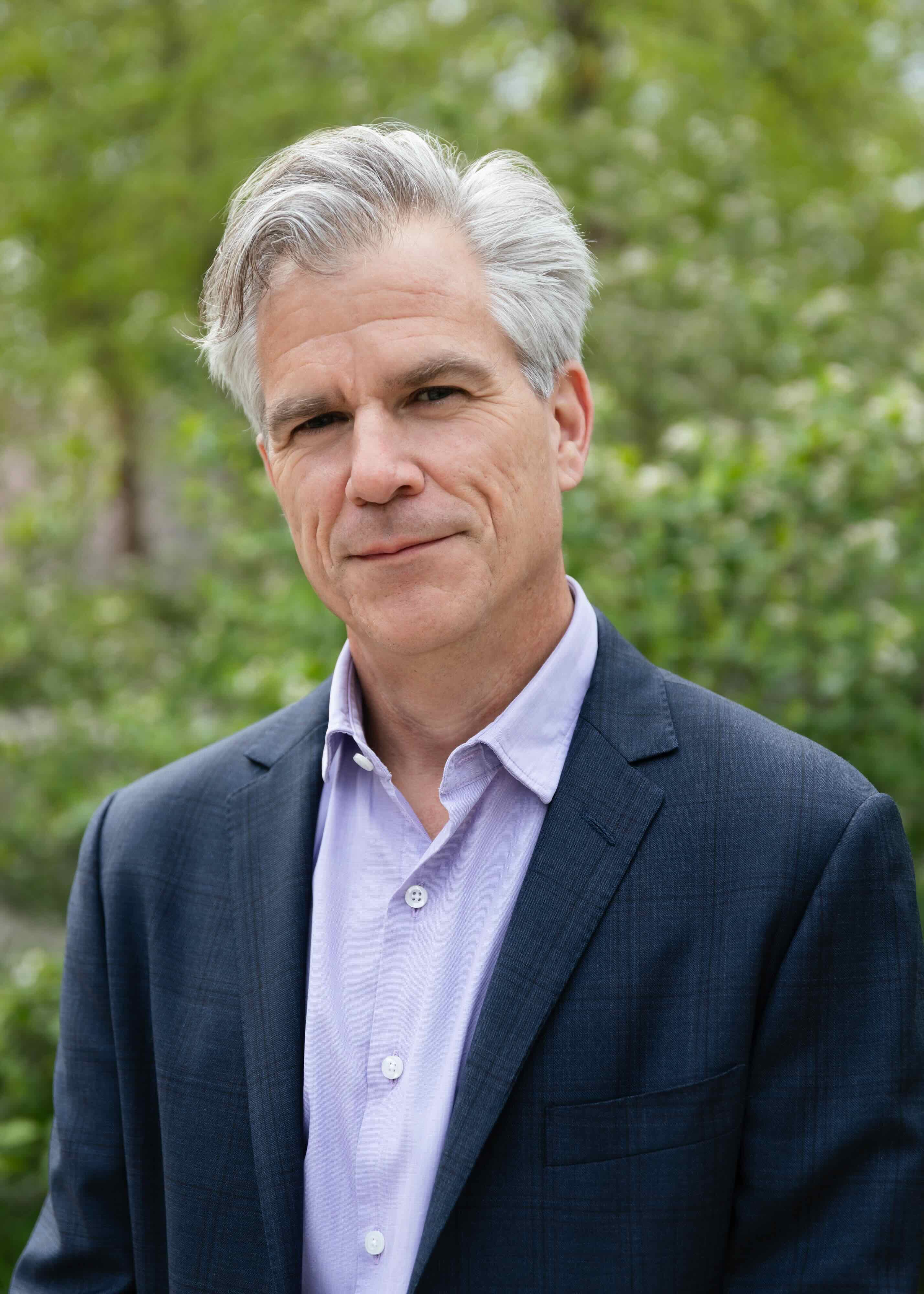
Columbia University, PhD '02
BIOGRAPHY
Paul Cheney is an historian of Europe with a specialization in old regime France and its colonial empire. Before beginning his PhD training in history at Columbia University, he studied political economy at the New School for Social Research. He has taught at Columbia University, the European College of Liberal Arts (Berlin), and the Queen's University of Belfast.
The unifying element of Professor Cheney’s work is an interest in early modern capitalism, and in particular the problem of how modern social and political forms gestated within traditional society. Old regime France serves as an excellent case study in this problem because of the way in which it combined real economic dynamism with deep-seated political and social impediments to growth. He addresses France’s integration into a globalized early modern economy in a methodology diverse way, drawing on intellectual, economic, and social history. His first book, Revolutionary Commerce: Globalization in the French Monarchy (Harvard University Press, 2010), examined how French philosophes, merchants, and administrators understood the adaptability of the French monarchy to the modernizing forces of primitive globalization. Currently, he is working on a second book entitled, Cul de Sac: Patrimony, Capitalism, and Slavery in French Saint-Domingue (University of Chicago Press, 2017), a micro-history of one plantation in France’s richest colony. He has published in such journals as The William and Mary Quarterly, Past & Present, Dix-Huitième siècle, and Les Annales historiques de la révolution française.
Recent Graduate Courses
- The French Revolution
- Old Regime France
- Atlantic Worlds, c. 1700–1800
- Political Economy and the Invention of Society, c. 1680–1830
- Montesquieu and the Enlightenment, with Robert Morrissey, Department of Romance Languages and Literatures
- Revolutionary Culture in Eighteenth-Century France and America, with Eric Slauter, Department of English
Recent Research / Recent Publications
- Cul de Sac: Patrimony, Capitalism, and Slavery in French Saint-Domingue. Chicago: University of Chicago Press, 2017. Published in French as Cul de Sac: Une Plantation à Saint-Domingue au XVIIIe siècle. Arthème Fayard, 2022.
- Revolutionary Commerce: Globalization and the French Monarchy. Cambridge, MA: Harvard University Press, 2010.
- “The Capitalism and Slavery Debate: Land, Labor, and Capital,” Critical Historical Studies 12, no. 1 (2025): 1–22.
- “Inheritance and Incest: Toward a Lévi-Straussian Reading of Montesquieu’s De l’esprit des lois,” History and Theory 64.1 (2025): 46–74. (open access)
- “Le Débat sur capitalisme et esclavage : un débat inachevé,” In Travail servile et dynamiques économiques XVIe-XXIe siècle, edited by Mendes, Almeida, Conchon, Anne, Alessandro Stanziani, and Myriam Cottias, 97–116. Paris: IGPDE-Comité pour l’histoire économique et financière de la France, 2024.
- “Political Economy,” in The Cambridge Companion to Montesquieu, eds. Keegan Callanan and Sharon Krause, Cambridge Companions to Philosophy (Cambridge University Press: 2023), 216-31. (Open access)
- "István Hont, the Cosmopolitan Theory of Commercial Globalization, and Twenty-First-Century Capitalism." Modern Intellectual History (15 March 2021): 1-29.
- "The French Revolution’s Global Turn and Capitalism’s Spatial Fixes." In "Forum: The French Revolution is Not Over." Special edition, Journal of Social History 52, no. 4 (Summer 2019).
- "Haiti's Commercial Treaties: Between Abolition and the Persistence of the Old Regime." In Balance of Power, Balance of Trade: the Politics of Commercial Treaties in the Eighteenth Century. Edited by Antonella Alimento and Koen Stapelbroek. London: Palgrave Macmillan, 2017.
- "Commerce." In The Cambridge Companion to the French Enlightenment. Edited by Daniel Brewer. Cambridge: Cambridge University Press, 2014. (Open access)
- "Aufklärung und die politische Ökonomie des Kolonialismus.” In Der moderne Staat und „le doux commerce”–Staat, Ökonomie und internationales System im politischen Denken der Aufklärung. Edited by Olaf Asbach. Baden-Baden: Nomos, 2014.
- With Alan Forrest, Lynn Hunt, Mathias Middel, and Karine Rance. "La révolution française à l'heure du Global Turn." Annales historiques de la Révolution française 374 (Dec. 2013). [link requires subscription access].
- With Loïc Charles. "The Colonial Machine Dismantled: Knowledge and Empire in the French Atlantic." Past and Present 219 (May 2013). [link requires subscription access]
- "A Colonial Cul de Sac: Plantation Life in Wartime Saint-Domingue, 1775-1783." Radical History Review: Special issue Haitian Lives /Global Perspectives 115 (Win. 2013): 45–54. [link requires subscription access]
- "A False Dawn for Enlightenment Cosmopolitanism? Franco-American Trade during the American War of Independence." The William and Mary Quarterly 63 (July 2006): 459–84. [link requires subscription access]
- "L'Histoire du commerce." In Le Cercle de Vincent de Gournay: savoirs économiques et pratiques administratives en France au milieu du xviii siècle. Edited by Loïc Charles, Frédéric Lefebvre, and Christine Théré. Paris: INED, 2011.
- "Finances, Philosophical History and the 'Empire of Climate': Enlightenment Historiography and Political Economy." Historical Reflections 31, no. 1 (2005): 141–67. [link requires subscription access]
- "Les économistes français et l'image de l'Amérique: l'essor du commerce transatlantique et l'effondrement du 'gouvernement féodal'." Dix-huitième siècle 33 (2001): 229–43.
- "Constitution and Economy in David Hume's Enlightenment." In David Hume's Political Economy. Edited by Margaret Schabas and Carl Wennerlind. London: Routledge, 2008.
- "Lumières écossaises." In Dictionnaire électronique Montesquieu. Edited by the École normale supérieure de Lyon, pour le compte de l’Institut d’histoire de la pensée classique. February 2008 (September 2013, 2nd ed.).
- Awarded the Society for French Historical Studies' 2018 Gilbert Chinard Prize for Cul de Sac.
- Receives NEH grant to conduct a summer seminar for college and university teachers in July 2018.
- Published Cul de Sac: Patrimony, Capitalism, and Slavery in French Saint-Domingue (Chicago, 2017)
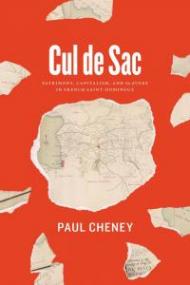
- Delivers plenary lecture at Oxford University, United Kingdom
- Discusses his latest research on Saint-Domingue/Haïti at Aarhus University
- Invited to be a visiting professor the Ecole des Hautes Etudes en Sciences Sociales, Centre de Recherches Historiques, spring 2016
- Organizes conference on "Political Economy in the Age of Enlightenment and Revolution: Interdisciplinary Approaches"
- Collaborates with Parisian scholar on Colonial Plantation Economy
- “The French Revolution,” radio interview on WGN Chicago, Extension 720, March 22, 2011.
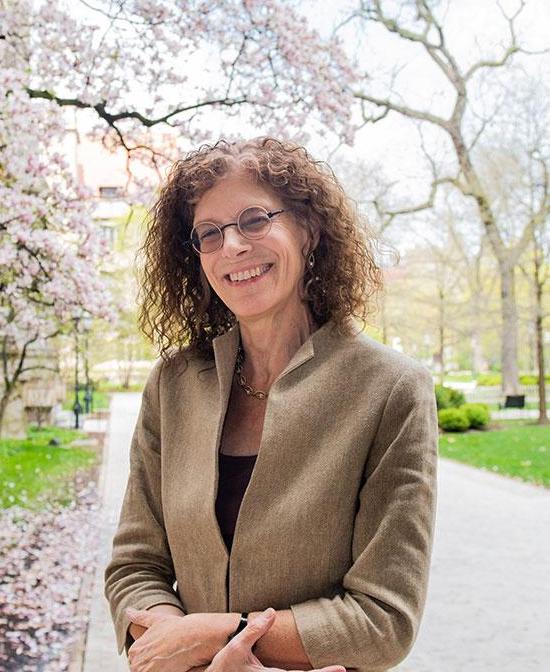
Brown University, PhD '88
BIOGRAPHY
The primary national focus of my research is modern France, but I have found myself intrigued by research problems best treated transnationally. My most recent book, Cultural Revolutions, moves across the Atlantic world from Britain, to colonial and early national America, and finally eastwards again to France. My ongoing pair of projects, Strangers at Home and Conundrums of Commemoration, stay on the European continent but involve a comparative analysis of Paris and Berlin in the twentieth century. Finally, although I have not yet published extensively in this area, I maintain an active interest in and regularly teach the history of European colonialism and the postcolonial world it left behind.
Conceptually, my work focuses on the intersection of material culture, everyday life, and politics. I seek to explain how and why everyday things have become catalysts for conflict, means of expressing identities and constructing selves, vehicles for dissenting opinions, and sites of unexpected state intervention. My research agenda is based on the hypothesis, informed by phenomenology and feminist theory, that key to answering these questions is the close and careful study of material culture, but a close and careful study that always links the concreteness of everyday goods to the abstractions of polity, society, and economy.
Although the courses I offer are necessarily broader and more general than this research agenda, they have been systematically informed by it. I use material and well as visual and textual sources in virtually all my classes, and nearly all are transnational in reach.
TEACHING
Undergraduate courses (selected)
-
Problems in Gender Studies
-
Europe 1930 to the present
-
Colonizations Civ III
-
Jewish Civ III
-
Modern Jewish History
-
Cultural Revolutions
Graduate courses (selected)
-
Seminar: Religion, Politics and Society in Modern Europe (with John Boyer)
-
Everyday Life in Modern Europe (with Sheila Fitzpatrick)
-
Seminar: The Politics of Memory in France and Germany (with Michael Geyer)
-
Gender in Europe (with Susan Gal)
-
Seminar: Race, Racism and and Anti-Racist Movements in Modern Europe
Recent fields for general examinations
-
Modern European History
-
Modern French History
-
Gender History and Theory
-
Culture and Politics in Modern Europe
-
European Social History
Titles of some recent (or current) AB and AM theses and PhD dissertations
-
Islam and the Republic: A Study of the Effects of the Algerian Civil War on French Understandings of Islam
-
Female Action and the Closing of the Women’s Clubs during the Reign of Terror
-
War Relic: Revisiting the Leaning Virgin of Albert
-
Working Class Milieus under Attack: Struggles between the Left and Right in Leipzig and Lyon, 1929–1936 (co-chair with Michael Geyer)
-
The Evolution of French Abolitionism and the Memories of the French and Haitian Revolutions, 1815–1848
-
The Ground Beneath their Feet: Agricultural Industrialisation and the Remapping of Rural France, 1954–1976
-
Making Islam French Unsettling French Algeria: Settlement, Terror, and Violence in the French-Algerian War, 1954–1962.
-
The Permanent Souvenir: Tattoos and Travel from Banks to Barnum Cultivating the Nation, Refining Empire: Wine, Sugar, and Nation-building in Guadeloupe and the Aude, 1880–1910
-
The Imperialism of Un-Free Trade: Nineteenth Century British Wine-Trading Enclaves in Oporto, Madeira, and Andalusia
-
Writing Black, Talking Back: Consuming, Performing, and Selling Race in Postwar France, 1945–1968
-
From Children to Citizens: Republican and Catholic Primary Education in France, 1880–1914
-
Fashioning the Folk: The Production and Reproduction of Alsatian Traditional Dress, 1871–1939
-
The Rebirth of the Mediterranean: Migrants, Race, Nation, and Labor in the Western Mediterranean, 1914–1940
-
Pale Fire: Jews in Revolutionary White Russia, 1917–1929 (cochair with Sheila Fitzpatrick)
-
Selling Paris: The Real Estate Market and Commercial Culture in the Nineteenth-Century Capital
Recent Research / Recent Publications
My publications in the domain of material culture and the histories of production and consumption include two books: Cultural Revolutions: Everyday Life and Politics in Britain, North America, and France (Oxford: Berg Press, 2008; Berkeley: University of California Press, 2009); French translation (Presses Universitaires de Mirail, 2009) and Taste and Power: Furnishing Modern France (Berkeley: University of California Press, 1996). I am also currently working on two book-length projects in this area: The Everyday of Modern Citizenship: France and Germany 1918–1940 and Conundrums of Commemoration.
My articles on material cultural and politics include "Perceptions of Beauty and the Problem of Consciousness," in Lenard Berlanstein, ed. Rethinking Labor History (Urbana: Univeristy of Illinois Press, 1993); "After the Revolution: Recycling Ancien Régime Style in the Nineteenth Century," in Bryant T. Ragan and Elizabeth Williams, eds. Recreating Authority in Revolutionary France (New Brunswick, NJ: Rutgers University Press, 1992), pp. 144–174; "The Gendering of Consumer Practices in Nineteenth-Century France," in Victoria de Grazia and Ellen Furlough, eds. Sex of Things: Essays on Gender and Consumption (Berkeley: University of California Press, 1996), pp. 79–112; “Regeneration through the Everyday? Furniture in Revolutionary Paris,” in a special issue of Art History 28, no. 1 (Spring 2005), ed. Katie Scott, and; “Beyond Words,” American Historical Review (October 2005); “Historians and Architectural History,” Journal of the Society of Architectural Historians (March 2006).
My work on material culture, postcolonialism, and everyday politics in contemporary Europe includes three essays: "'Sambo' in Paris: Race and Racism in the Iconography of the Everyday," (coauthored with Tom Holt) in Susan Peabody and Tyler Stovall, eds. The Color of Liberty: Histories of Race in France, (Raleigh, N.C.: Duke University Press, 2002); "Bavarian Crucifixes and French Headscarves: Religious Practices and the Postmodern European State," Cultural Dynamics 12/3 (2000): 183–209 and "Accommodation, Resistance, and Eigensinn: Evolués and Sapeurs between Africa and Europe," in Belinda Davis, Michael Wildt, eds. Alltag, Erfahurng, Eigensinn: Historisch-Anthropologische Erkundungen (Frankfurt/New York: Campus Verlag, 2008), pp. 205–217.
My most recent area of research is at the intersection of Jewish history and material culture. Some early thoughts on those questions may be found in "'Jewish Taste'? Jews, and the Aesthetics of Everyday Life in Paris and Berlin, 1933–1942," in Histories of Leisure, ed. Rudy Koshar, 299–318 (Oxford: Berg Press, 2002). That reflection has taken a somewhat different turns in "Resisting Context: The Spiritual Objects of Tobi Kahn," in Objects of the Spirit: Ritual and the Art of Tobi Kahn, ed. Emily Bilski, 71–78 (New York: Avoda/Hudson Hills, 2004); "Coming Home? Jews in Postwar Paris," Journal of Contemporary History 40, no. 2 (2005): 237–59; and "The Boundaries of Jewishness or when is a Cultural Practice Jewish?" Jewish Social Studies (Spr. 2009). Finally, "Archiving a Life: Post-Shoah Paradoxes of Memory Legacies" for a volume edited by Alf Lüdtke and Sebastien Jobs, submitted September 2008, is my most recent venture in this area.
My work in the field of feminist history and gender studies includes Différence des sexes et protection sociale (XIXe–XXe siecles), a coedited volume with Michelle Zancarini-Fournel (Paris: Presses Universitaires de Vincennes, 1995); "Feminist Theory and Social History: Explorations in the Politics of Identity," Radical History Review 53 (Fall 1992): 158–76; "Do Women's + Feminist + Men's + Lesbian and Gay + Queer Studies = Gender Studies?" differences 9, no. 3 (Fall 1997): 1–30; Le genre de la nation. Fall 2000 issue of Clio: Histoire, femmes et sociétés on gender, citizenship, and the nation, coedited with Michelle Zancarini-Fournel; "Women's Suffrage, Citizenship Law and National Identity: Gendering the Nation-State in France and Germany,1871–1918," in Women's Rights and Human Rights: International Historical Perspectives, ed. Patricia Grimshaw, Katie Holmes and Marilyn Lake, 138–52 (London: Macmillan, 2001); "Gender at the Intersection of the Disciplines," Cahiers Parisiens/Parisian Notebooks 2 (2006): 434–46; and an issue on "Judaïsme(s): genre et religion" for Clio: Femmes, Genre, Histoire 44 (2016), co-edited Sylvie Steinberg.
-
Recipient of the Quantrell Award for excellence in undergraduate teaching, 2023
-
Co-edits Objects of War with Tara Zahra, 2018
-
Featured in "French Historians under the Spotlight," French History Network (blog), Apr. 2017
-
Delivers Samuel and Lillian Solotkin Memorial Lecture in Jewish Studies, Indiana University, Feb. 2017
-
Taste and Power: Furnishing Modern France cited "Trump, Taste, and Power," Arts & Econ (blog), 2017
-
Leads Teaching from Objects workshop, Western Society for French History, 2015
-
Co-organizes "People and Things on the Move" conference with Tara Zahra, Neubauer Collegium, May 2015
-
Named the inaugural Arthur and Joann Rasmussen Professor in Western Civilization
-
Awarded Faculty Award for Excellence in Graduate Teaching and Mentoring
